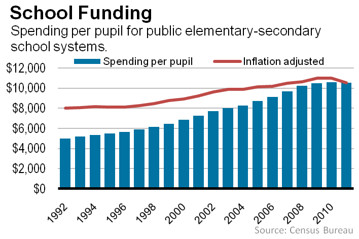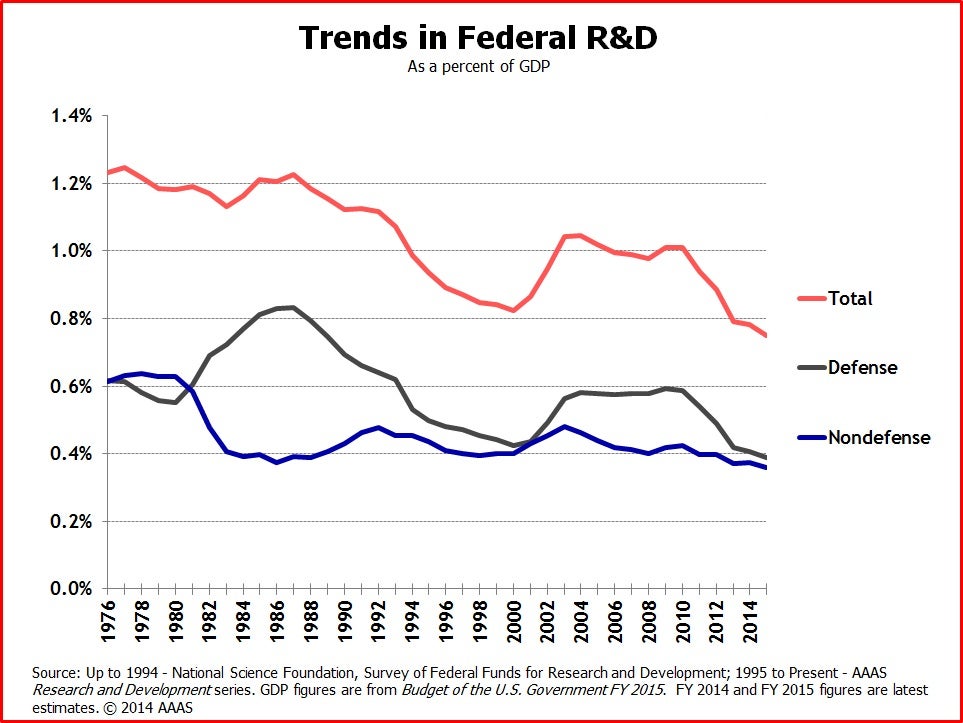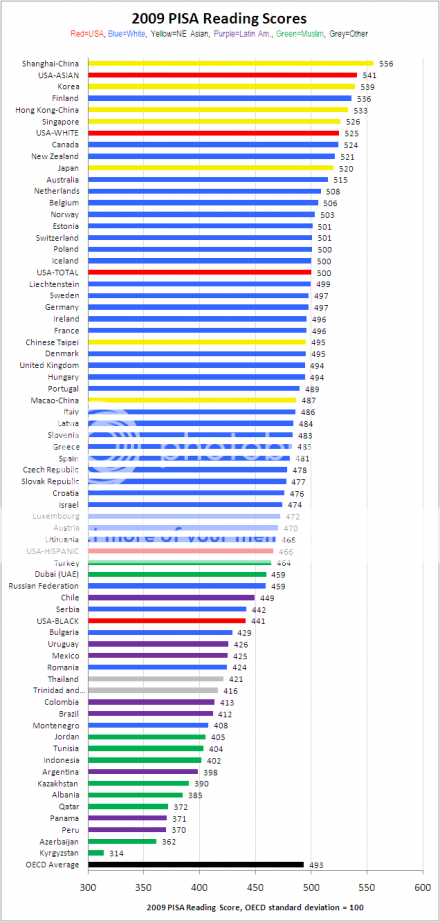tosacco
Active Member
- Aug 29, 2014
- 168
- 39
- 31
I am moving this over from my introduction thread. The US needs to increase funding to R&D as well as strengthen our public education system (both k-12 and higher ed) in order to stay competative in the contemporary, globalized world.
The federal government has only spent between 0.3 and 0.4 percent of its GDP on R&D at public institutions in recent years. I cite the public institutions figure because it's overwhelmingly low considering not only does a lot of important, innovative research happen at public institutions, but the research conducted at public institutions is also the primary training mechanism for the future knowledge workers. If we were serious about staying competative we would be investing double the amount of tax dollars in R&D at public institutions.
The reality of the situation is our economy is quickly becoming a knowledge economy dependent on things like technological transfer, R&D, knowledge production, etc. The amount we invest in research is actually quite small vis-a-vis other developed nations. In order to stay competative we should be investing more in research, as well as increasing the amount of funding for education to ensure our citizens are knowledgeable about contemporary science and skilled in the state-of-the-art technology our economy is increasingly fueled by.
This is straight copy-pasted from the other thread, sorry if it's a little rigid.
The federal government has only spent between 0.3 and 0.4 percent of its GDP on R&D at public institutions in recent years. I cite the public institutions figure because it's overwhelmingly low considering not only does a lot of important, innovative research happen at public institutions, but the research conducted at public institutions is also the primary training mechanism for the future knowledge workers. If we were serious about staying competative we would be investing double the amount of tax dollars in R&D at public institutions.
The reality of the situation is our economy is quickly becoming a knowledge economy dependent on things like technological transfer, R&D, knowledge production, etc. The amount we invest in research is actually quite small vis-a-vis other developed nations. In order to stay competative we should be investing more in research, as well as increasing the amount of funding for education to ensure our citizens are knowledgeable about contemporary science and skilled in the state-of-the-art technology our economy is increasingly fueled by.
This is straight copy-pasted from the other thread, sorry if it's a little rigid.




